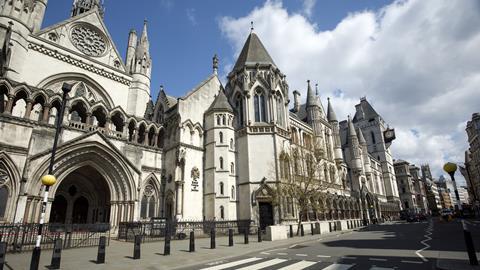The Court of Appeal has expressed ‘real concern’ at a local authority’s removal of three children subject to care orders, from their grandparents.
In K-H (Children) (Care Orders: Proportionality), the paternal grandparents appealed against care orders made in June 2025, after proceedings began in December 2022, in relation to their grandchildren.
The children had been placed with their grandparents with their parents’ agreement. The judgment noted they made ‘good progress’ and became ‘thoroughly settled’.
‘There was no suggestion that any of the children had suffered any harm in the grandparents’ care,’ the judgment said. ‘Nevertheless, the court, acting on professional advice, found it necessary for the children to be removed into long-term foster care because of the risk of future sexual harm from the grandfather or from an uncle, the father’s younger brother, who lived in the home until March 2025.’
The local authority, the London Borough of Waltham Forest, relied on three sexual offences convictions recorded against the grandfather between 1975-84 and two ‘sexual incidents’ involving the uncle, when he was 11 and 20. The uncle did not dispute those incidents. No findings of fact were made about them.
In lead judgment, Lord Justice Peter Jackson, with whom Lord Justice Coulson and Lady Justice Elisabeth Laing agreed, said: ‘It was disturbing to learn, mid-way through the appeal hearing, that the children had been removed from the grandparents before the expiry of the appeal period and in the knowledge that the grandparents wished to appeal. Even after permission to appeal was granted, contact was severely reduced.’
Read more
He added: ‘I express real concern at the actions that the local authority took once it had been invested with these care orders. Regardless of the merits of any appeal, there was no urgency about the children’s move. They were hastily removed from their settled family placement after minimal planning, with a notified attempt to appeal and the advice of the guardian being brushed aside, and two weeks later that foster placement had also collapsed.
‘On top of that, the local authority forged ahead with a severe reduction in family contact in the face of the grant of permission to appeal. Again, if this court had been told what was happening, it could and probably would have prevented it.’
The recorder was ‘materially influenced in her assessment by matters that had not been proved or even investigated’ which was ‘not a sound approach to risk assessment’.
Allowing the appeal, the judge said the welfare assessment had been ‘overwhelmed by the issue of risk…even if the unproven matters could have been taken into account, the evidence as a whole was incapable of justifying the permanent removal of these children from their family’.
He added: ‘Despite the care with which she approached the matter, the recorder was led by her acceptance of professional opinion into a welfare decision that was manifestly wrong and amounted to an unnecessary and disproportionate interference with the right to respect for the family life of the children and their grandparents.
‘There was…no justification, still less a compelling one, for these orders.’
Discharging the care orders, the CoA substituted a 12-month supervision order as a ‘proportionate response’, restored the interim child arrangements orders and remitted the grandparents’ application for special guardianship orders to the family court.



























